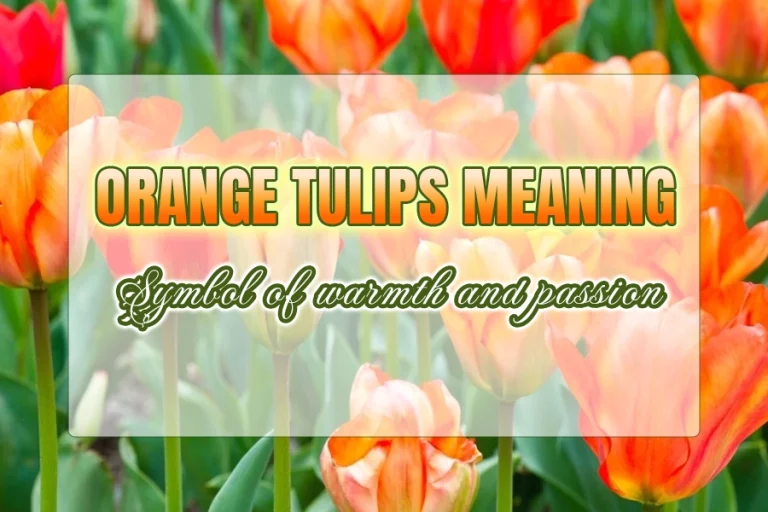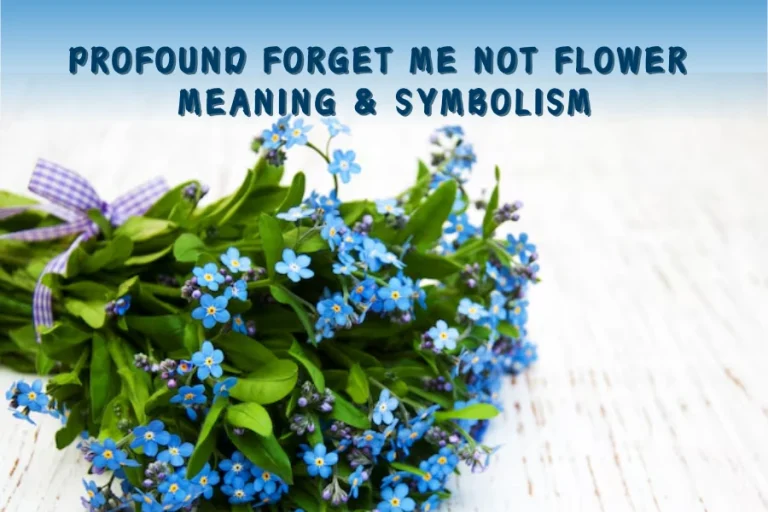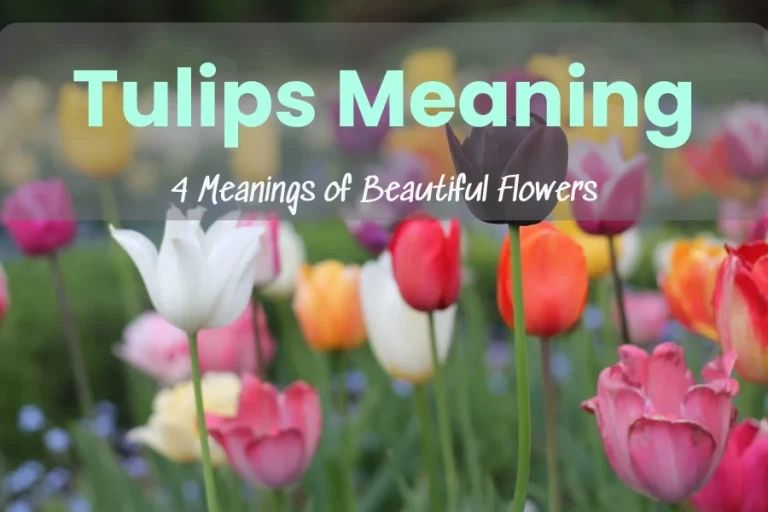Timeless Jasmine Flower Meaning: Symbol Of Love & Purity
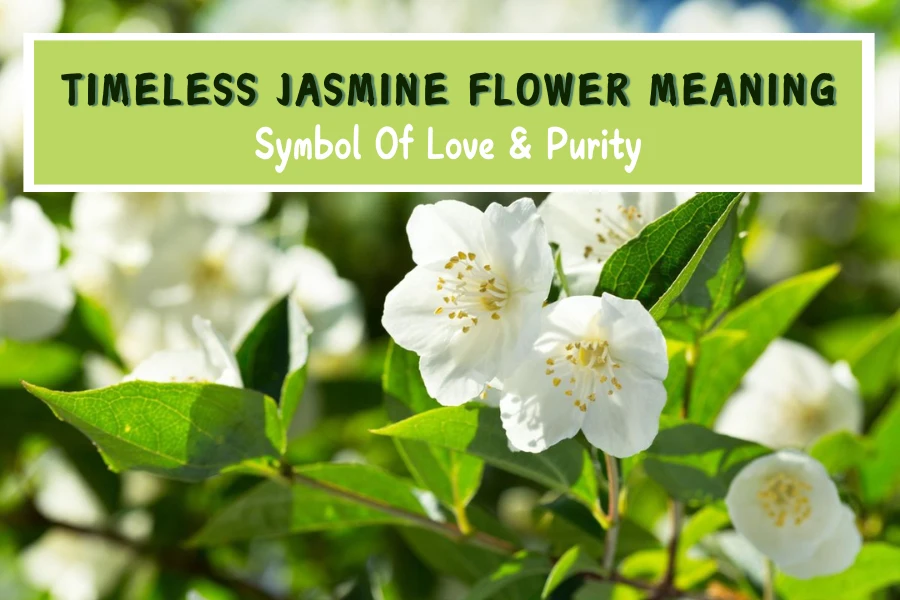
The jasmine is not only a flower admired for its breathtaking beauty and sweet fragrance but also for what it may symbolize. Throughout history, jasmine has symbolized love, purity, and peace in many cultures. Jasmine blooms are timeless and captivating, with delicate, star-shaped petals and an irresistible aroma.
From gardens, and arrangements, to weddings to teas, this charming flower does not cease to inspire people around the world. In this article, we will discover the jasmine flower meaning this flower can have from purity to spirituality. Besides, we will also consider the origins and the legends of this pure flower.
Jasmine Origin & Characteristics
Jasmine was native to tropical and subtropical parts of Asia but has spread worldwide due to its sweet fragrance. The tiny star-shaped flowers blow in the evening, releasing an intoxicating scent. Jasmine prefers warm climates and can always climb trellises or cascade down the walls.
The most common is the white jasmine, but some species of jasmine also bloom in pink and yellow shades. Jasmine flowers have decorated and graced gardens and ceremonies for ages because of their resilience and beauty.
The Legend of Jasmine Flower
In ancient myths, the jasmine flower is often related to love and divinity. In one of its legends, the gods bestowed jasmine upon humankind as a gift of love. In Greek mythology, jasmine is linked to Aphrodite, the goddess of love and beauty. In another, Princess Jasmine, refusing to marry anyone, turned herself into the flowers to represent pure and unblemished love. These legends highlight the timeless connection to love and purity of jasmine, making it a symbol that transcends cultures.
Jasmine Flower Meaning & Symbolism
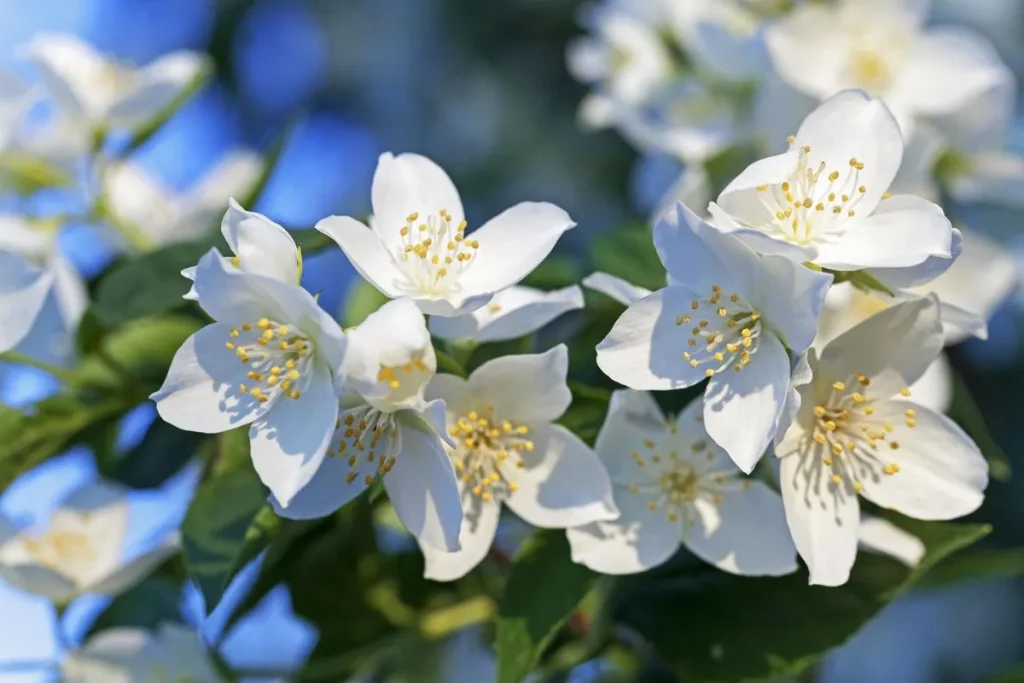
The jasmine flower not only has a beautiful appearance but also carries rich symbolism. If you love this kind of flower, you can’t skip to learn about the jasmine flower meaning.
Purity
Jasmine, a flower with all-white petals, has long been associated with purity and innocence. The white color associated with purity makes jasmine one of the popular choices at religious ceremonies and weddings. In many traditions, there is a belief that the flower embodies the purity of the heart and gives way to sincerity and kindness.
Peace
Jasmine is also considered the flower of peace because its fragrance is soothing, and the flower itself bears a gentle nature. Consequently, it can give a sense of tranquility and harmony within one’s being in aromatherapy. In some cultures, jasmine flowers would be brought inside one’s home or into a meditation room to invite serenity and an atmosphere of inner peace. Besides jasmine, lavender is also a famous flower that is known to symbolize peace.
Love
The intoxicating smell of jasmine has made it popular as a symbol of love and romance. Commonly, jasmine is used during wedding ceremonies and in romantic settings to show deep and passionate love. Jasmine’s presence in perfumes and romantic gestures highlights its connection to love.
Beauty & Elegance
The jasmine flower is tenderly beautiful, standing for refinement and daintiness. This type of blossom is little but delicate, conveying a sense of simplicity and grace. Its unobtrusive grace makes jasmine stand as one of the most beautiful flowers of nature, charming senses without being gaudy. In case you want to add more chic and modern style, add some tulips to the jasmine arrangement.
Sensuality
The rich and exotic fragrance of jasmine is closely associated with sensuality and desire. Often mentioned in perfumes and romantic settings, the scent of this flower easily works upon one’s senses, symbolizing the appeal and allure.
Spirituality
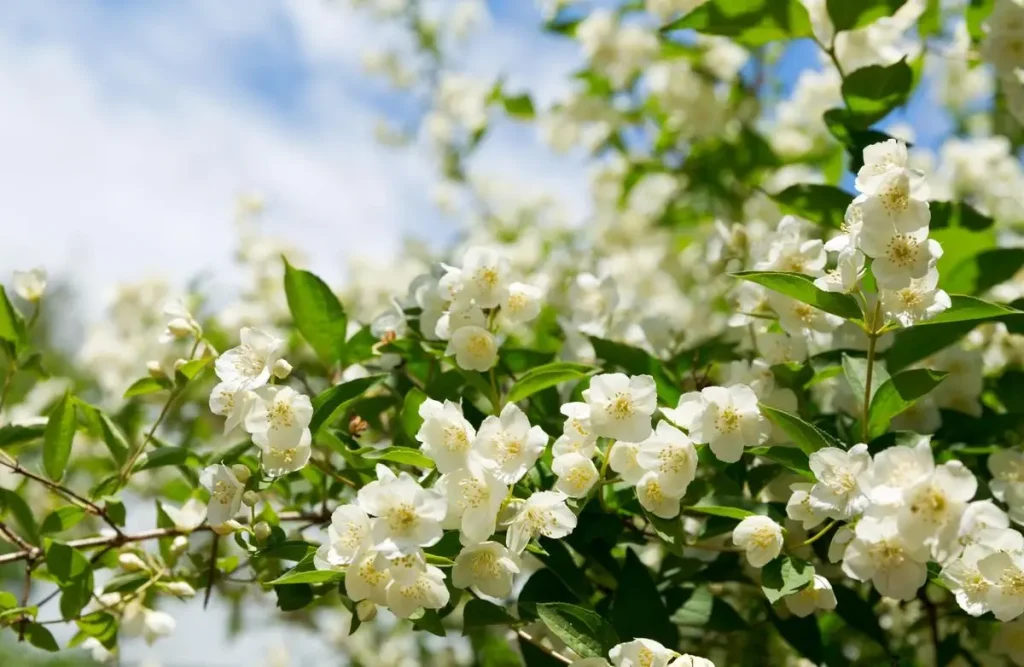
In spiritual traditions, particularly within Hinduism and Buddhism, the jasmine flower meaning is considered the embodiment of divine and spiritual grace. Jasmine is also linked with spiritual awakening and enlightenment.
Good luck
In many cultures, jasmine is taken as a good omen. The aromatic flowers are said to bless a place with richness, prosperity, and positivity. So, the jasmine is brought as a decorative item within the house to bring good fortune and to chase away negative energies.
Hospitality
Jasmine flowers are symbolic of hospitality because jasmine is known for its warm welcome. Jasmine is commonly offered as a gift to guests because of its pleasant and delicate aroma. The act of giving jasmine flowers denotes respect and appreciation, which speaks highly of the giver’s humility and openness.
Modesty
Despite its striking beauty, jasmine is also a symbol of modesty. Its tiny, lowly blooms remind one that beauty really lies in simplicity and silent grace.
Jasmine Flower Meaning By Colors
Jasmine flowers are available in several colors, and each of these colors carries its unique meaning. However, all are related to the central meaning of love, purity, and beauty.
White Jasmine
White jasmine is the most frequent kind and represents purity, innocence, and spiritual purity. This white-petaled flower is in great demand on the occasion of weddings, religious occasions, or any other event that involves a new beginning with untainted love. White jasmine suits very well as a present for a bride, a spiritual mentor, or anyone who embarks on a fresh journey in life.
Pink Jasmine
Pink jasmine is the flower of love, affection, and joy. The soft pink color makes it romantic and hence one of the best presents for anniversaries and Valentine’s Day. The pink flowers are used to show admiration and tenderness towards one’s loved one. They represent the warmth and tenderness in a relationship.
Yellow Jasmine
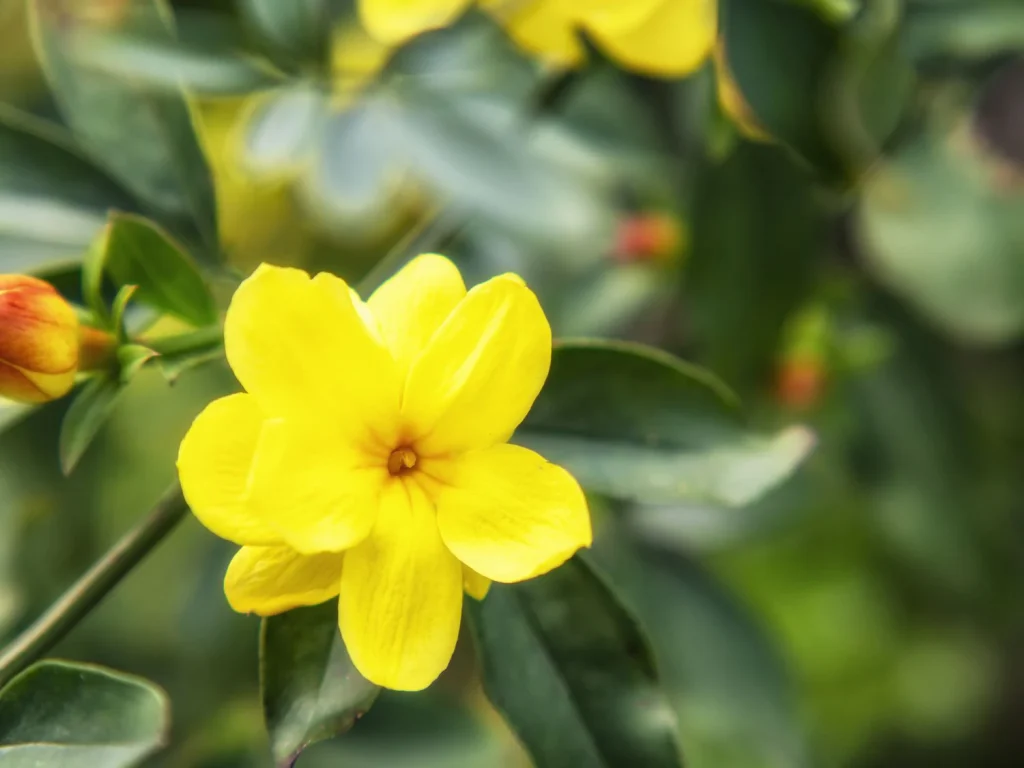
Yellow jasmine represents happiness, friendship, and positive energy, just like the sunflower. It is a color so cheerful that it may be used to raise somebody’s spirits or to celebrate joyful milestones, such as birthdays and new accomplishments.
Jasmine Flower Meaning In Cuisine
Jasmine is a relatively well-known plant in the culinary world, whether in teas, desserts, or any other form of sweet dishes. Jasmine tea is highly valued for its subtle scent and calming properties, especially popular in China. In Middle Eastern cuisine, jasmine petals are added to give flavor and aroma to the sweet dishes, adding an extra exotic touch to any recipe.
Jasmine Flower Meaning In Medicine
Jasmine also has a place in traditional medicine. It had been used as a sedative that would drive down stress, anxiety, and depression. Jasmine oil is an extract from flowers and can be used for aromatherapy to relax and uplift the mood. Moreover, jasmine tea is thought to enhance health and aid in food digestion.
Last Words
Jasmine flowers are more than just beautiful blooms. Jasmine flower meaning has inspired us a lot, from love, purity, and peace, to spiritual growth. They are not only perfect to be given as gifts but also to place in the home. If you want to bring some peace and pure sense to your place, a vase of white jasmine surely can help.
USA Shipping
We offer free shipping across USA through FedEx
Secured Checkout
All purchases made on website are safe & secure
Call and Email Support
Proper email and call support to address concerns
Easy Returns
We have a hassle-free 30- day return policy

